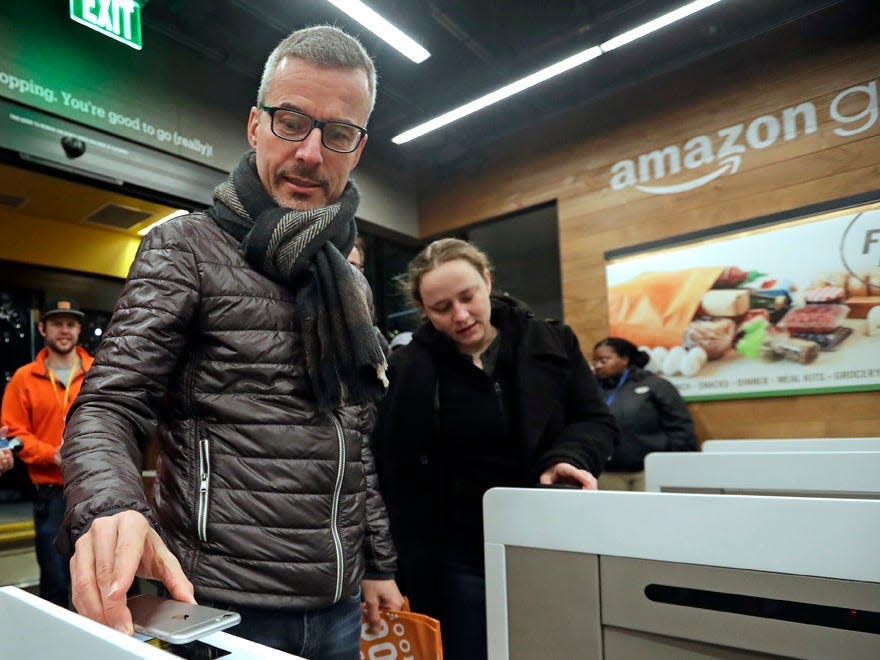Amazon opened its first physical store outside the US. The London store uses weight sensors to detect what customers pick up and bills their card automatically.

Amazon on Thursday opened its first physical store outside the US.
The store uses cameras and weight sensors to detect what customers pick up and then bills them.
The Amazon Fresh store in London will sell prepared meals, groceries, and Amazon devices.
Amazon opened an Amazon Fresh grocery store in London on Thursday - its first physical store outside the US.
The cashierless store is located in the borough of Ealing, in West London, and works the same way as the chain's autonomous Amazon Go stores in the US.
The new store carries a private UK food brand called "by Amazon" and lets customers skip the checkout line.
Customers scan a smartphone app to open the store's entry gates. Ceiling cameras and weight sensors on shelves determine what shoppers add to their carts or put back, and their on-file credit cards are automatically billed after they exit.
The location is much smaller than a supermarket, at about 2,500 square feet, and will sell prepared meals, some groceries, and Amazon devices. It will also have a counter for picking up and returning online orders.
The opening is a sign of the Seattle-based company's ambition to sell food globally and its belief that physical stores are a key way to capture people's high spend on groceries, a category it has yet to dominate.
Amazon, the world's largest online retailer, has so far worked toward that goal in the US by acquiring the Whole Foods chain in 2017.
It has also launched an array of its own store formats: about two dozen cashierless convenience stores called Amazon Go, two Seattle-area Amazon Go Grocery stores that are about four times the size, and 10 Amazon Fresh supermarkets in California and Illinois.
Amazon opened its first Amazon Go store in 2018, which, like the new London store, uses a system of cameras and sensors to track shoppers and products so customers can grab their items and leave without physically checking out. Amazon is also ramping up its efforts to sell the software used in the stores, known as Just Walk Out, to third-party retailers.
In September, the tech giant also launched Amazon One, a biometric scanner, which allows people to pay by waving their hand. As well as plans to sell it to other stores, sports stadiums, and even offices, the tech also works as an alternative entry method for Amazon Go stores.
Because of the coronavirus pandemic, some people have come to view contactless shopping as a "necessity," according to Steve Gu, the CEO of AiFi, which provides retailers with software and hardware so they can make their stores autonomous.
He told Insider the pandemic had expedited the market adoption of autonomous stores, where customers can not only avoid interacting with a cashier but also avoid waiting in a line at the checkout, where it can be hard to socially distance.
"A key factor in the success of the rollout will be Amazon's ability to continue to create a personalised experience for its in-store customers," Elle Nadal, EMEA director of EMEA marketing at marketing platform Iterable, told Insider.
"Its tailored approach to online retail is what has helped them become the business they are today. Customers will be expecting to see the marriage of efficiency and personalisation that has served Amazon so well in the past."
Read the original article on Business Insider


